第50章 X. (2)
First, For that Glanville (which, as has been observed, is the ancientest Collection we have of English Laws) seem to be even transcribed in many entire Capita of the Laws above-mentioned, and in some others where Glanville doubts, that Book doubts; and where Glanville follows the Practice of the Laws then in Use, tho' altered in succeeding Times, at least after the Reign of Edw. I. there the Regiam Majestatem does accordingly;for Instance, viz.
Glanville, Lib. 7. cap. I. determines, That a Man can't give away part of the Lands which he held by Hereditary Descent unto his Bastard, without the Consent of his Heir, and that he may not give all his Purchases from his eldest Son; and this is also declared to be the Law of Scotland accordingly, Regiam Majestatem, Lib. 2. cap. 19, 20. Tho' since Glanville's Time, the Law has been altered in England.
Also Glanville, Lib. 7. cap. I. makes a great Doubt, Whether the second Son, being enfeoffed by the Father, and dies without Issue; whether the Land shall return to the Father, or descend to his eldest, or to his youngest Brother; and at last gives such a Decision as we find almost in the same Terms and Words recited in the Question and Decisions laid down in Regiam. Majest. Lib. 2. cap. 22.
Again, Glanville, Lib. 7. cap. I. makes it a difficult Question in his Time, Whether the eldest Son dying in the Life-time of his Father, having Issue, the Nephew or the youngest Son shall inherit; and gives the Arguments Pro & contra: And Regiam Majestatem, cap. 33. seems to be even a Transcript thereof out of Glanville.
And further, the Tract concerning Assizes, and the Time of Limitation, the very Form of the Writs, and the Method of the Process, and the Directions touching their Proceedings are but Transcripts of Glanville, as appears by comparing Regiam Majestatem, Lib. 3. cap. 36. with Glanville, Lib. 13. cap. 32. and the Collector of those Laws of Scotland in all the before-mentioned Places, and divers others, quotes Glanville as the Pattern at least of those Laws.
But Secondly, A second Evidence is, because many of the Laws which are mentioned in the Regiam Majestatem quoniam Archiamento, and other Collections of the Scotish Laws, are in Truth very Translations of several Statutes made in England in the Times of King Hen. 3. and King Edw. I. For Instance; the Statute of their King Robert 2. cap. I. touching Alienations to Religious Men, is nothing else but an Enacting of the Statute of Mortmain, 13 E. 1. cap. 13. The Law above-mentioned, touching the Disparagement of Wards, is desumed out of Magna Charta, cap. 6. and the Statute of Merton, cap. 6. So the Law abovesaid, against Ravishers of Wards, is taken out of Westm. 2. cap. 35. So the said Law of the double Value of Marriage, is taken out of Westm. 1. cap. 22. The Law concerning Wreck of the Sea, is but a Transcript out of Westm. 1. cap. 4. and divers other Instances of like Nature might be given, whereby it may appear, that very many of those Laws in Scotland which are a part of their Corpus Juris, bear a Similitude to the Laws of England, and were taken as it were out of those Common or Statute Laws here, that obtain'd in the Time of Edw. I and before, but especially such as were in Use or Enacted in the Time of Edw. I and the Laws of England, relative to those Matters, were as it were the Original and Exemplar from whence those Similar or Parallel Laws of Scotland were derived or borrowed.
Thirdly, I come now to consider the Third Particular, viz. By what Means, or by what Reason this Similitude of Laws in England and Scotland happened, or upon what Account, or how the Laws of England at least in many Particulars, or Capita Legum, came to be communicated into Scotland, and they seem to be principally these two, viz. First, The Vicinity of that Kingdom to this. And Secondly, The Subjection of that Kingdom unto the Kings of England, at least for some considerable Time.
Touching the former of these; First, It is very well known, that England and Scotland made but one Island, divided not by the Sea or any considerable Arm thereof, but only by the Interjacency of the River Tweed, and some Desart Ground, which did not hinder any easy common Access of the People of the one Kingdom to the other: And by this Means, First, The Intercourse of Commerce between that Kingdom and this was very frequent and usual, especially in the Northern Counties, and this Intercourse of Commerce brought unto those of Scotland an Acquaintance and Familiarity with our English Laws and Customs, which in Process of Time were adopted and received gradually into Scotland.
Again, Secondly, This Vicinity gave often Opportunities of transplanting of Persons of either Nation into the other, especially in those Northern Parts, and thereby the English transplanted and carried with them the Use of their Native Customs of England, and the Scots transplanted hither, became acquainted with our Customs, which by occasional Remigrations were gradually translated and became diffus'd and planted in Scotland; and it is well known, that upon this Account some of the Nobility and great Men of Scotland had Possessions here as well as there: The Earls of Angus were not only Noblemen of Scotland, but were also Barons of Parliament here, and sate in our English Parliaments, as appears by the Summons to Parliament, Tempore Edvardi Tertii.